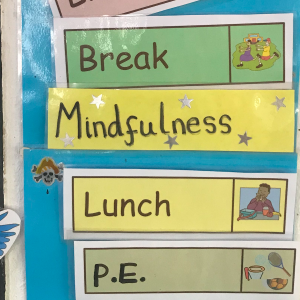The 'Empty' Garden
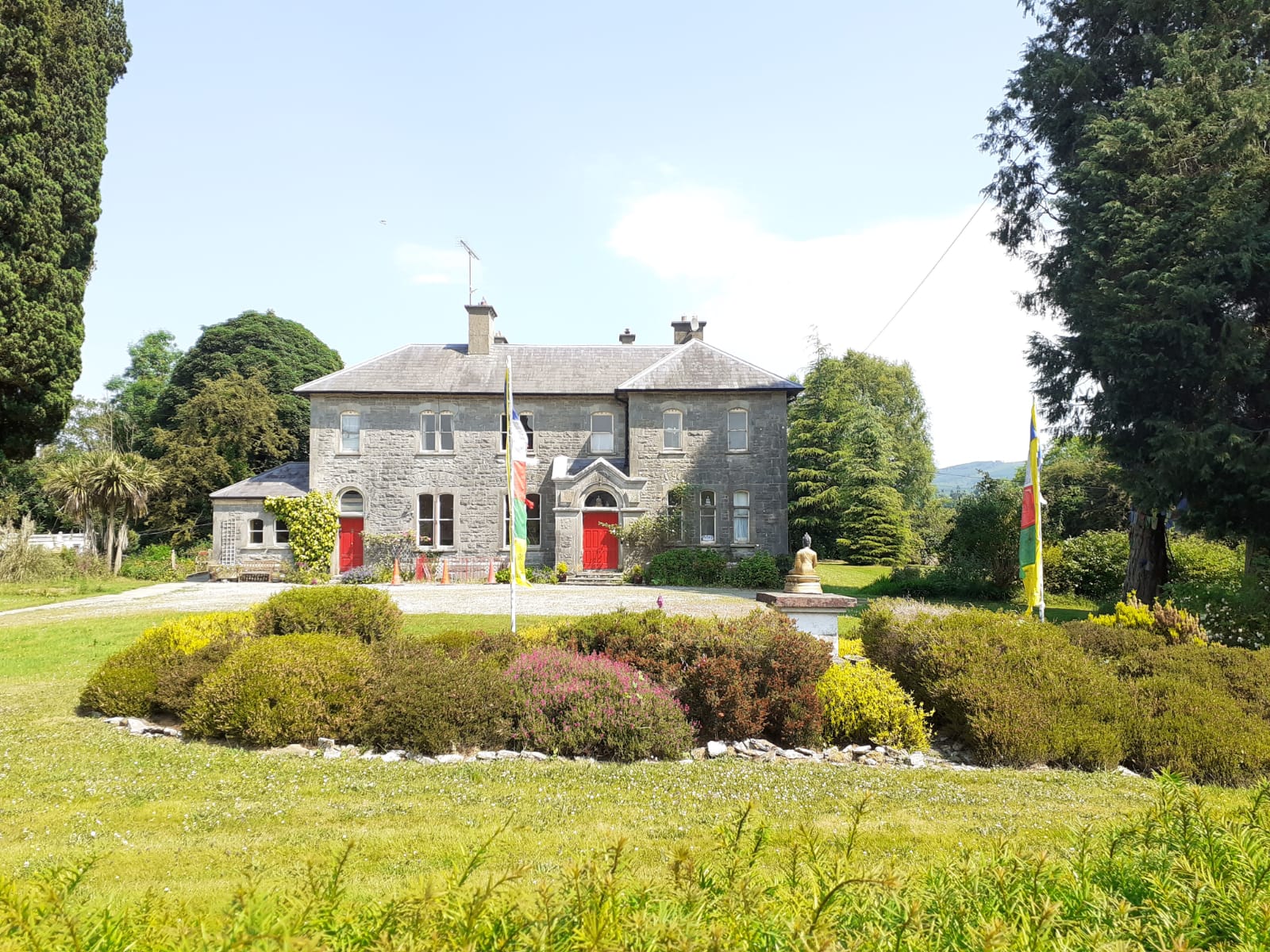
A year ago, Christina and I had the great pleasure of visiting Jampa Ling (above), the Tibetan Buddhist Centre in Co. Cavan in Ireland. My great friend Evelyn lives, works and practices there and, through her, I had the honour of corresponding with, and meeting, the centre’s spiritual director, the Ven. Panchen Otrul Rinpoche, pictured below.
When I reached out to Rinpoche, he suggested that I studied further the Buddhist concept of emptiness. It was something I had explored, but not too deeply. He recommended that I read the Dalai Lama’s book, “Practicing Wisdom; the Perfection of Shantideva’s Boddhisattva Way” to gain more understanding of what emptiness is. Which I did. And more.
Intellectual understanding is one thing, however. The insights and realizations that you get from practice are another. It is only here where real understanding takes place.
Sitting looking out at our garden the other day, emptiness suddenly rang clear. But how can a garden be “empty” though?
“Emptiness” in Buddhism, doesn’t refer to a void, or “nothingness” – that’s the first important thing to say. Emptiness simply refers to the fact that nothing in the universe exists independently in its own right, including ourselves.
As humans we create around ourselves a fixed and permanent self that exists as “I” “me” or “mine”, and everything and everyone else is “the other.” But just think about what this separateness creates!
Those three words, “I”, “me” or “mine” have caused a phenomenal amount of suffering in the world, from a personal scale to the world of politics and economics. Our addiction to “me” causes much pain – both to ourselves and others.
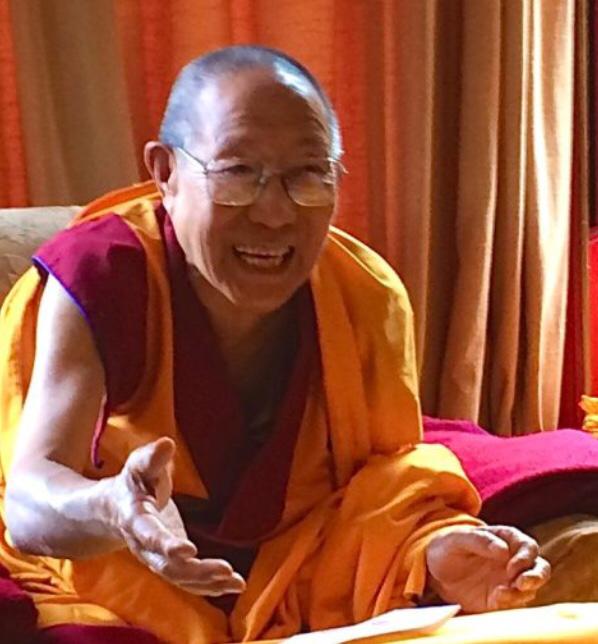
The teachings on emptiness show us that there is no fixed, independent, permanent self. There is no, fixed, independent anything! We exist, in fact, because we depend on other factors for our existence. If we depend on other things for our existence, then how can we be independent, separate beings?
In short, we are not what we think we are.
That brings me to the garden. Gazing out at our garden on the Indian Ocean I can see the beautiful plants and trees that have been planted by Christina, and others. I see the little machamba (veggie garden) that Christina has lovingly nurtured and cared for.
I see the literally hundreds of butterflies that are feeding here and the multitudes of insects that do the same. I see the huge spider webs that catch these insects. I observe the birds and notice the half-eaten chilis where the bulbuls come to feast every day.


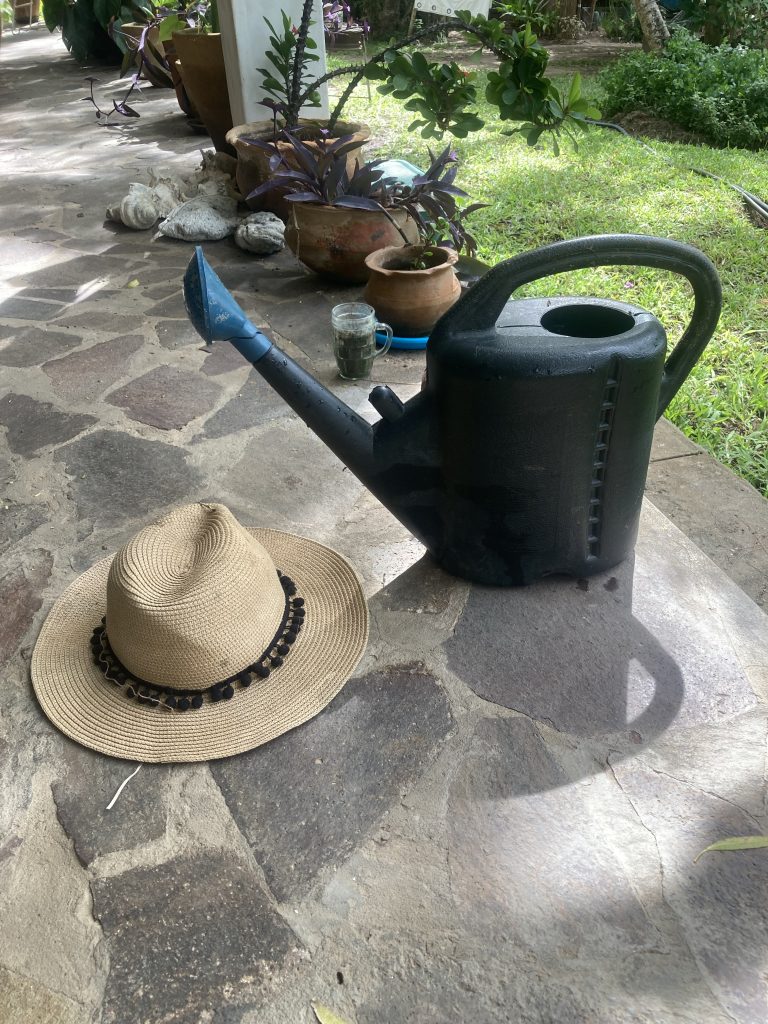
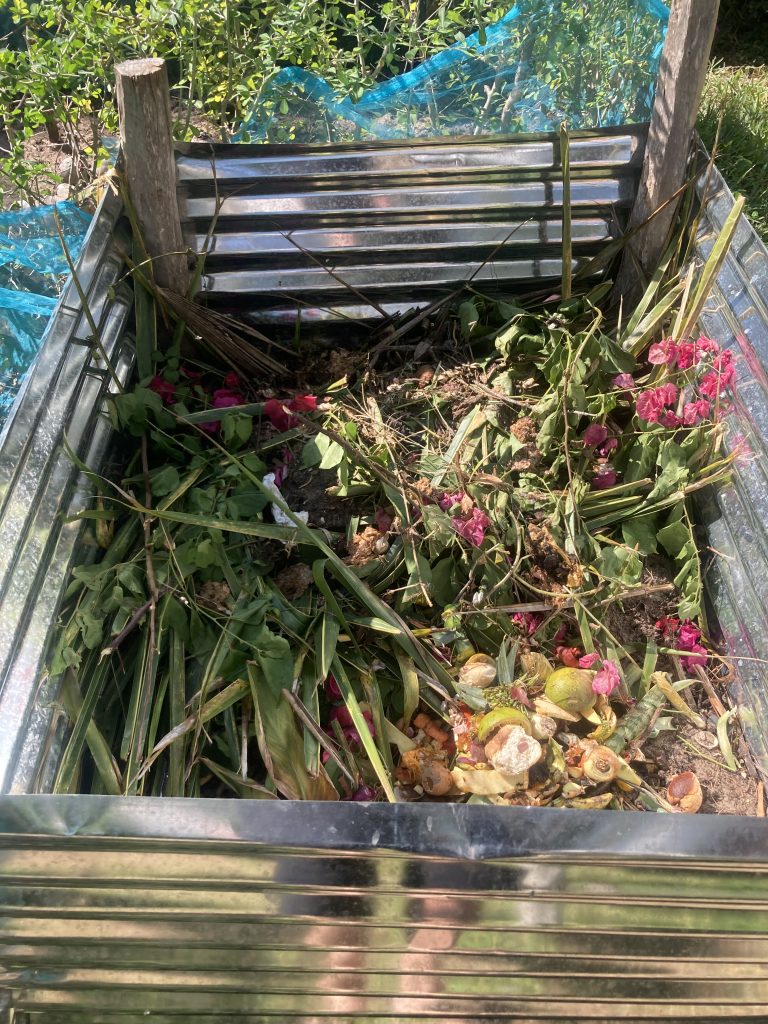
The compost heap stands there basking in the sun. Here everything that has died will, sometime in the future, bring life back to our sandy soil. And the watering can stands at the ready. Even the watering can is empty. If you think about it, where is the essence of this watering can? Does it exist in the spout? No. In the handle? No. In any other part? No – the watering can only exist as a sum of all these parts. And on the person who made it. And on us who name this strange looking thing a “watering can”.
All the above is emptiness. It shows the interdependency of all of this on all of the other things. Nothing in our garden exists by itself, independent of everything else. The plants depend on Christina’s daily watering or the little rain that sometimes falls. The bulbul chili feast depends on us planting the chilis there in the first place. The butterflies depend on the plants, the plants depend on the bees to regenerate. Even the scavenging and marauding chickens help to regenerate the soil by their digging and depositing. And all depend on the warmth and light of our big star, the sun.
Vietnamese Zen master Thich Nhat Hanh called this “interbeing”. We all “inter-are” with each other. In every flower or tree, we can see the rain, the sun, the soil and the person who planted it. Everything exists depending on other causes and conditions.
Our garden reflects the intricate inter-existence and dependency of the entire universe.
The logic of emptiness is wonderfully airtight. Like all simple truths, its clarity is immediately self-evident: we are. And there is no moment in which we are separate and apart: we are always connected—to past, to future, to others, to objects, to air, earth, sky. Every thought, every emotion, every action, every moment of time, has multiple causes and reverberations—tendrils of culture, history, hurt, and joy that stretch out mysteriously and endlessly.
We just are. Just is. Thusness
Norman Fischer

